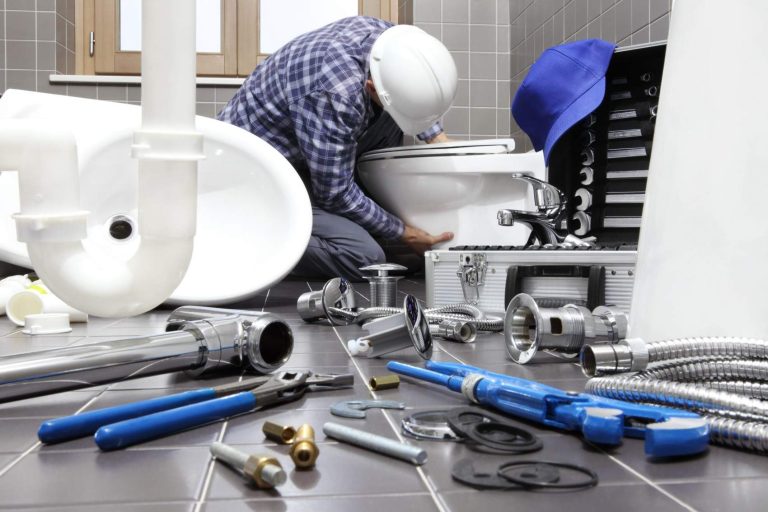Assessing the Problem When plumbing issues emerge, the first step is having an experienced contractor accurately diagnose the problem. A reliable plumber will troubleshoot the issue by asking questions, thoroughly inspecting your pipes and fixtures, and using specialized tools to pinpoint where and how breakdowns are occurring. Once they’ve gathered the critical details, they can advise on the best solutions.
Minor Fixes
For surface-level problems like leaks, drips or clogs in isolated areas, minor repairs are often all that’s needed. Plumbers have the right materials and expertise to provide fixes like:
- Sealing cracks and pipe joints
- Replacing worn washers and gaskets
- Snaking clogged drains
- Quieting noisy pipe vibrations
- Adjusting/replacing broken fixture parts like flapper valves
With targeted small repairs, plumbers can quickly restore proper functioning at a reasonable price.
Large-Scale Replacements
However, some situations call for going beyond isolated repairs for a whole-system plumbing overhaul. If your pipes are outdated, corrosion is a recurring issue, or problems persist despite attempts at fixes, a full replacement may be the smartest long-term solution. By removing deteriorated old plumbing and starting fresh with new pipes and updated fixtures, you can enjoy:
- Enhanced water flow and pressure
- Reduced leaks
- Decreased recurring clogs
- Improved drainage
- Greater system reliability
Though more costly initially, system replacements can save money over years of ownership through efficiency gains and fewer emergency repairs.
What a Plumbing Contractor Does
Plumbing contractors offer a wider range of services compared to a general plumber. Their skills extend beyond basic installations, repairs, and upgrades in existing homes. For new construction and major remodels, a contractor’s specialized expertise is key.
These professionals can design and plan out entire plumbing systems for new buildings based on architectural plans. They strategically lay out new supply lines for clean water inlets, waste pipes for sewage drainage, gas lines for appliances, and vents through the walls and roof to comply with codes. The expert knowledge of a plumbing contractor allows them to configure complex networks serving bathrooms, kitchens, laundries, and more.
In remodeling, it often becomes necessary to move or reroute existing plumbing to accommodate layout changes like adding bathrooms or relocating kitchen fixtures. This requires modifying walls, floors, and ceilings to run all-new pipe networks. Rather than a basic upgrade job, you need a contractor who can revise and refresh plumbing supply and drain lines for optimal function within a transformed layout.
Finally, plumbing contractors have the resources and staff to carry out massive fixture installation jobs. They possess large work trucks with specialty plumbing tools and equipment plus coordinated teams to facilitate major undertakings—for example, fitting all bathrooms in a 20-unit new condo building. A single plumber would be overwhelmed but contractors have the workflow to furnish many units simultaneously in less time.
So, while regular plumbers can provide repairs and simple upgrades in existing homes, plumbing contractors are necessary for the start-to-finish plumbing demands of large-scale new construction and whole-house reconfigurations. Their advanced skills ensure well-designed systems tailored to each building’s unique needs.
Let Your Plumber Guide You
Every situation is unique. By leveraging your plumber’s expertise, they can clearly explain whether targeted repairs or all-out replacements provide the best value for your home and budget. Relying on their years of experience ultimately offers cost savings and peace of mind.

